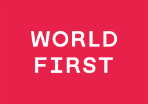Daniel is Founder and CEO and has 20 years of experience in the international finance world focusing on cross-border payments, technology and the property sectors. Daniel is widely quoted as an expert within the money transfer industry including by The Economist, The Wall Street Journal, Reuters, CNBC and Bloomberg. Daniel is passionate about helping consumers and businesses find the best and most efficient ways to transfer money internationally.
Frequently asked questions
How we calculate the savings
Contents
Summary
Israel’s money transfer regulations
Israel's monetary authority
Economic background
Currency
Israel to Individual Country Guides
Summary
The New Israel Shekel (ILS) is a fully convertible currency, making it simple to send money to Israel or transfer money from Israel. All transfers must be executed by dealers authorised by the central Bank of Israel. Previous Israeli foreign currency restrictions have largely been removed.
Israel’s money transfer regulations
Dealers are required to report large-scale foreign currency transfers to the Controller of Foreign Currency to monitor the level of foreign assets and combat money laundering. Corporate profits, capital gains and other passive income may be transferred abroad freely.
In the past, the government maintained some restrictions on foreign exchange operations, primarily for resident individuals or firms looking to send money outside of Israel. However, these restrictions had largely been dismantled by 2003, when the government removed constraints for institutional investors to acquire foreign assets. The currency most frequently traded with the shekel is the US dollar, followed by the euro.
Israel's monetary authority
The countrys central bank, the Bank of Israel, determines monetary policy, oversees the financial system, ensures the proper function of foreign exchange processes and other payment systems, and works to preserve price stability. The shekel floats freely, its exchange rate determined by supply and demand on the global market. The Bank of Israel retains the ability to intervene in monetary markets to preserve the shekels stability, but its policy its to refrain from foreign currency trading except in cases of rapid, disruptive shifts in the exchange rate.
The government and monetary authorities have worked to encourage foreign direct investment (FDI), and in most cases, foreigners are subject to the same restrictions as residents. Foreign investment, like domestic investment, is only required to be pre-approved by the government in regulated sectors such as banking and insurance.
Economic background
Israels economy is driven by its close political and commercial links to developed markets, and its booming science and technology sectors which draw in significant foreign investment inflows. In 2014, expectations of a strong shekel may challenge Israeli exports competitiveness in the near-term, but should continue encourage foreign investment. Israel has become much more than just the Start-up Nation it has often been referred to as.
Currency
Israels monetary unit, the New Israel Shekel (ILS), plural sheqalim, is made up of 100 agorot (singular agora). Banknotes are issued in values of 20, 50, 100 and 200 sheqalim. Coins are minted in denominations of 1, 5, 10 and 50 agorot, as well as 1, 2, 5, and 10 sheqalim.
Israel to Individual Country Guides
Transfer Money Israel to UK
Transfer Money Israel to USA














